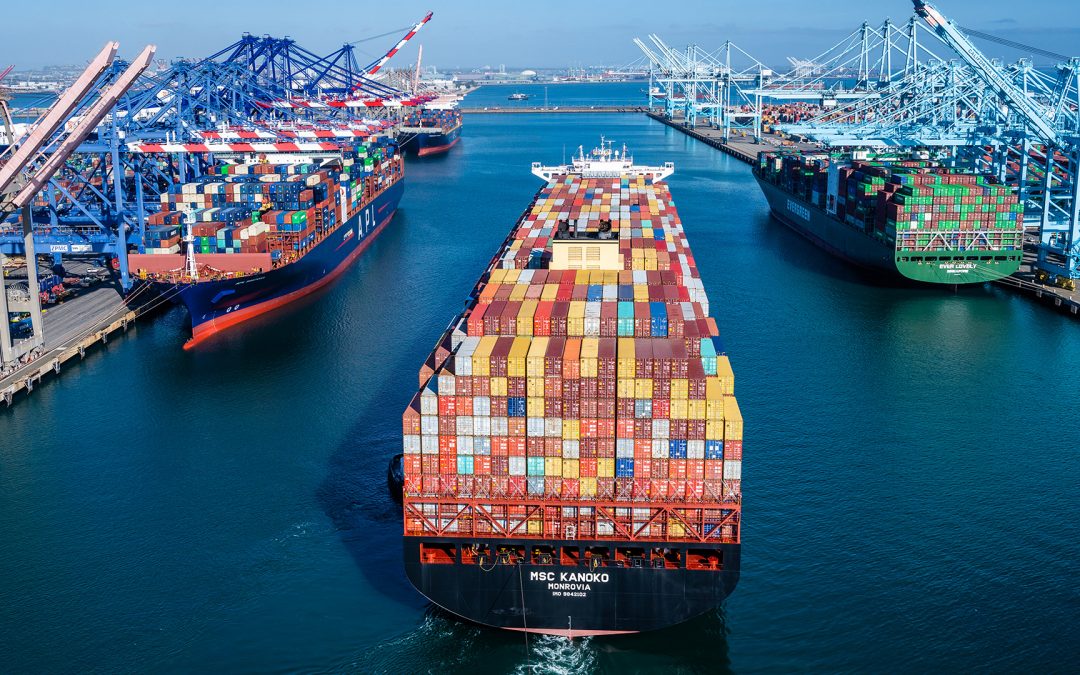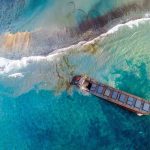Union leaders from the US East Coast, Canada and international transport worker federations have joined negotiations between dockers and Pacific coast employers in a significant show of solidarity.
The International Longshore Workers’ Union (ILWU), which is leading contract talks for US Pacific coast ports, was joined by global dockers leaders from around the globe.
The international longshore solidarity delegation included elected leaders from dockers’ federations the International Transport Workers’ Federation (ITF) and the International Dockworkers Council (IDC), alongside leaders from the International Longshoremen’s Association (ILA), the Maritime Union of Australia (MUA), ILWU Canada and officials from ILWU’s US, Alaskan and Hawaiian longshore divisions.
The ILWU is leading contract talks on behalf of 22,000 workers at all 30 ports on the US West Coast. It is in the process of negotiating a new deal with the Pacific Maritime Association (PMA) which represents port employers. The importance of US ports in global markets means these contract negotiations are keenly watched around the world. Both sides have expressed confidence that a deal will be reached.
“Dockers face the same challenges the world over and often they’re employed by the same multinational companies,” said Paddy Crumlin, ITF President and ITF Dockers’ Section chair. “Ports have been operating 24/7 under huge pressures throughout Covid-19 and in the sharp economic upturn that followed. Longshore workers have been on the front lines, doing the heavy lifting.”
[ILWU international longshore solidarity delegation from left: Rob Ashton, ILWU Canada President; William Hartigan, ILA International ITF Representative, ILA Local 1804-1; Dennis Daggett, IDC General Coordinator, ILA Executive Vice President, ILA LOCAL 1804-1 President; Paddy Crumlin, ITF President, ITF Dockers’ Section Chair, MUA National Secretary; William Adams, ILWU International President; Dustin Dawson, ILWU Hawaii Longshore Division Director; Robert ‘Bobby’ Olvera Jr, ILWU Vice President; ILWU Alaska Longshore Division President.]
“Profits are soaring across supply chains. Shipping giants and global network terminal operators are making record profits, while workers’ wages slide backwards against surging inflation. This is an issue for all transport workers, all dockers, whether in the US, Germany or Felixstowe in the UK. That is why it is such a critical time to show all employers that dockers speak with one collective voice. That we have each others’ backs.”
East backs west as global unions pledge support
Although negotiations remain confidential, talks continue to focus on pay, benefits including healthcare, and the impacts of automation in the industry. These are equally concerning for East Coast workers and their union’s involvement in Pacific talks demonstrates a united front to employers. The delegation included leaders from the ILA, which represents more than 70,000 longshore workers on the US Atlantic and Gulf Coasts, the Great Lakes, major rivers, Puerto Rico and Eastern Canada.
“Dockworkers around the world have a lot in common,” said Crumlin. “We have a long, shared history of effective trade union solidarity. Once again, it’s time to show the power of a collective voice in negotiations and the strength in our convictions that dockworkers deserve decent pay and conditions.”
It demonstrates the strength of feeling over current issues that brought together the ILWU, ILA, ITF and IDC, said Crumlin. He believes employers are too often wielding power over the industry in a cavalier way, focused on short-term profits. A decent deal for dockers is crucial to the smooth operation of world trade, he said.
“History has shown what a mistake it can be to take on the commitment and solidarity of dockworkers around the world,” Crumlin said. “Dockers’ unions around the globe have expressed their solidarity and backed the ILWU for a longshore victory in 2022. Now is the time for us to remind the stevedoring sector that the strength of solidarity among transport workers is that foundation on which we will shape change to protect our livelihoods.”
Source: Hellenic Shipping News






